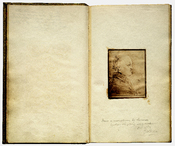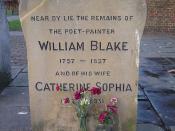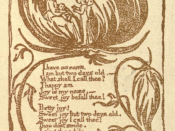Part I, Question 1:
If someone asks what is the relevance or the reason to study the great works of poetry, another may promptly affirm that poetry is one of the many forms of art which can very easily and rapidly respond to the transformations that are occurring in a society in a certain moment. In fact, poetry, as a form of personal and social expression, is a mechanism and organism that can convey the social and historical changes of a specific society and time. And it is extremely important to bear those aspects of poetry in mind when we read William Blake's poetry. During his lifetime, William Blake "witnessed" very important and significant social and historical revolutions, such as The Industrial Revolution and the American Revolution, which, consequently, made him very aware and interested in the historical changes and its consequences to the society. Therefore, Blake became extremely concerned with the transformations that were taking place during his life; fact that also made him very critical to it.
Another very relevant aspect of William Blake's poems is his interest in oppositions, contrasts, and dichotomies. Blake was fascinated by antagonistic poles since he thought that these opposite aspects were extremely important for human life. The two most clear and significant contrasts present in Blake's poetry is the opposition between childhood and adulthood - which can be clearly seen in Songs of Experience and Songs of Innocence - and the opposition between the city and the countryside. In many of his poems, William Blake writes about the social transformations that were taking place in England, more specifically in London, and its consequences to the society: in one of his most famous poems, which is also named London, Blake "maps", describes the British capital in a tone of "complaint" of the...


